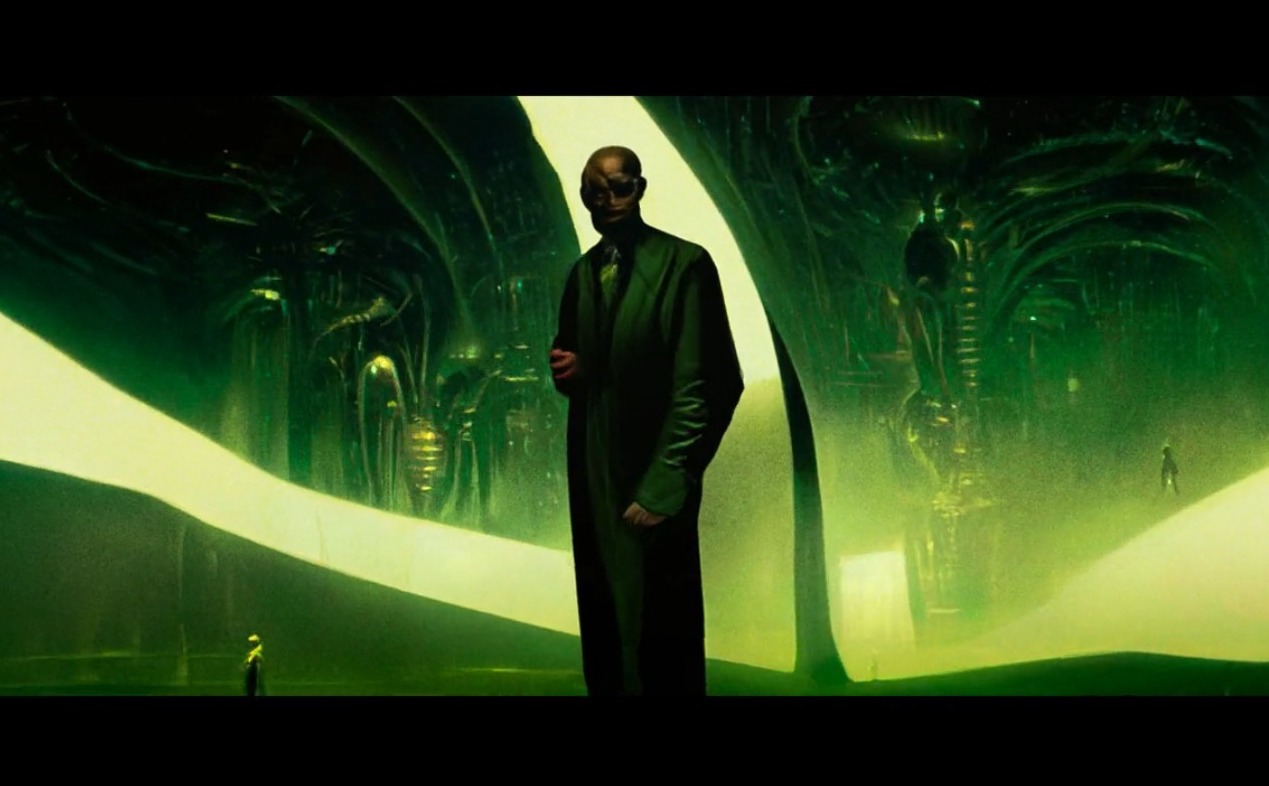The question over whether art or media created by artificial intelligence systems has been debated everywhere from Big Tech companies to the actors and writers walking the picket lines in Hollywood. A federal judge may have just offered an answer.
U.S. District Court Judge Beryl Howell sided with a U.S. Copyright Office ruling that a piece of art created by plaintiff Stephen Thaler’s “Creativity Machine” did not quality for copyright protection because “the work lacked human authorship, a prerequisite for a valid copyright issue.”
“In the absence of any human involvement in the creation of the work, the clear and straightforward answer is the one given by the Register: No,” Judge Howell said in her opinion.
Thaler is the CEO of Imagination Engines, which has built a neural network, and in 2018, he listed Creativity Machines as the creator of a piece of artwork called A Recent Entrance to Paradise.
The ruling could have ramifications on Hollywood and how willingly studios embrace AI-generated content. The idea of using a computer to generate whole scenes or even shows and movies without the aid of humans is a prospect that’s become very real — just look at Secret Invasion’s AI-generated opening credits — and is one of the key issues that Hollywood writers and actors are striking over. But the lack of copyright protection means the legal rights that studios would have over their own AI-generated content might be in question, likely moving them to reconsider their interest in the technology.
The decision comes amid an explosion in interest in AI, sparked by the emergence of ChatGPT this year. Its ability to creatively generate answers, book reports and virtually anything else you can think of has set off both a wave of companies looking to find new applications for AI, as well as concern about it replacing human jobs or setting off unintended dangers.
The ruling acknowledges that AI is just in its early days. Judge Howell said that “we are approaching new frontiers in copyright as artists put AI in their toolbox to be used in the generation of new visual and other artistic works.” There remains questions over how AI content will properly credit the original, human-created works that powers its dataset, since these systems can’t work in vacuum.
But the ruling falls in line with previous decisions that have affirmed the notion that art and other works requires a human element to warrant copyright protection. The Supreme Court have stressed in prior opinions the aspect of humans and copyright as the “right of a man to the production of his own genius or intellect,” according to the Hollywood Reporter.
This isn’t the first time Thaler has put his systems at the forefront legal review. He had previously sought a pair of patents for a food container and flashlight on behalf of DABUS, his AI system, wanting to give his Creativity Machine full credit, according to CNN. The US Patent and Trademark Office denied the request, saying it could only be granted to “natural persons.” He’s also made similar attempts in Europe and UK.
Thayer’s attorney, Ryan Abbott of Brown Neri Smith & Khan, said they would continue to pursue the case.
“We strongly disagree with the District Court’s ruling,” Abbott said in an email. “The law is clear that copyright is intended to benefit the public through encouraging the creation and dissemination of works, regardless of how they are created, and we do plan to appeal.”

